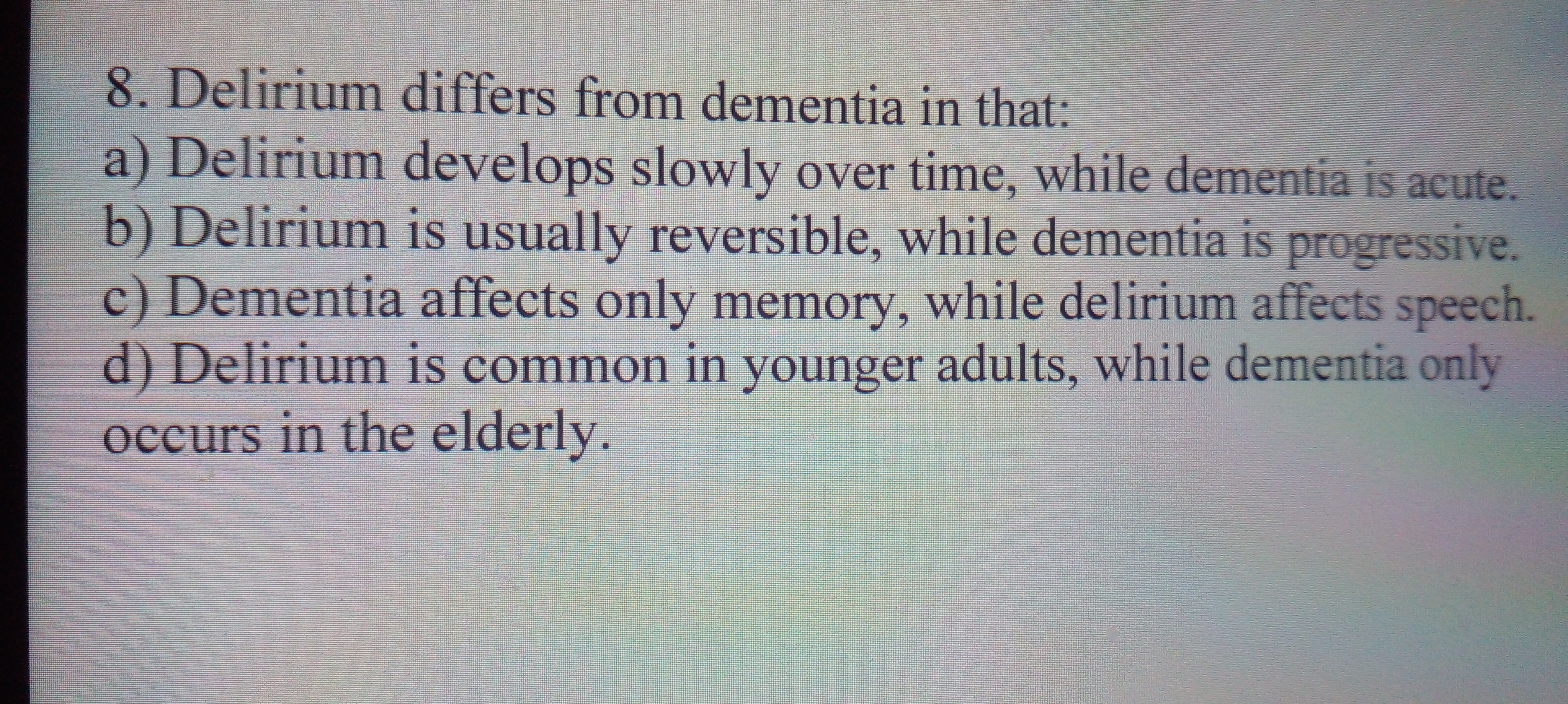Delirium differs from dementia in that: a) Delirium develops slowly over time, while dementia is acute. b) Delirium is usually reversible, while dementia is progressive. c) Dementi... Delirium differs from dementia in that: a) Delirium develops slowly over time, while dementia is acute. b) Delirium is usually reversible, while dementia is progressive. c) Dementia affects only memory, while delirium affects speech. d) Delirium is common in younger adults, while dementia only occurs in the elderly.

Understand the Problem
The question is asking for the differences between delirium and dementia, listing four statements about their characteristics. The task is likely to identify which of these statements is true or presents the correct information about each condition.
Answer
b) Delirium is usually reversible, while dementia is progressive.
The final answer is b) Delirium is usually reversible, while dementia is progressive.
Answer for screen readers
The final answer is b) Delirium is usually reversible, while dementia is progressive.
More Information
Delirium typically has an acute onset and is often reversible, usually resulting from a trigger such as illness or medication. Dementia, on the other hand, starts gradually and worsens over time.
Tips
A common mistake is confusing the acute nature of delirium with the slow, progressive onset of dementia.
Sources
- Delirium vs. dementia: Symptoms and more - MedicalNewsToday - medicalnewstoday.com
- Delirium - Symptoms and causes - Mayo Clinic - mayoclinic.org
- Overview of Delirium and Dementia - Neurologic Disorders - merckmanuals.com
AI-generated content may contain errors. Please verify critical information